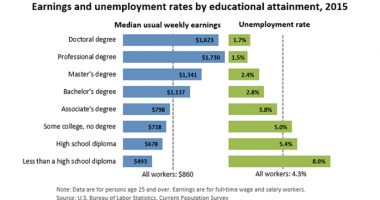
My early lessons in life were all around saving – not spending. Somehow, I have managed to find a balance with the money in my life and have both saved and spent wisely. This has proved to be the key to having my cake and eating it too.
I have often mentioned in this blog how I grew up with my grandmother living with us in the upstairs apartment of our home. I absorbed many money lessons by listening to her and my parents talk about money during our mid-day weekend meals. The overriding theme of those conversations was the need to save.
Money & fear
Even at my young age of 11, I felt the fear expressed in those conversations of not having enough money or of running out of money. My grandmother lived through the Great Depression. It clearly left a mark. Her habits reflected the need to save. She rinsed out plastic bags, turned them out to dry to be used again and again.
My parents’ decisions also reflected that fear of spending. Moving my grandmother into our home saved money for both my parents and my grandmother. One household required less money to spend – a possible hedge against running out of money.
Both my grandmothers, widows, died with very little in their savings accounts – and nothing in investments. Their homes were their only tangible asset.
I believe this was another subtle warning to my parents of what could happen if they did not save aggressively.
Learning from previous generation
When my dad died, he had saved enough to support my mother for another 11 years until she passed. After her death there was enough money left over to make a tangible difference in my and my sister’s life.
So, was my parents’ approach to money – save, never spend – the only way to avoid running out of money and leaving something for the next generation?
No, it was not. And, unfortunately, it robbed my parents of some of life’s most wonderful moments.
Gen Z & financial literacy
Rather than financial education around all of our money choices, today’s younger generations are constantly presented with ways to spend. Social media promotes not only spending but how important (their words) it is to have the best, experience everything now, for you are only young once!
But for many of us, hopefully, we will not only be young once, but old once as well. And to have the best, to take advantage of experiences, you need to save and invest. Bottom line – You can have everything you want in life, just not all at the same time.
According to a 2023 report by the TIAA Institute, a financial organization that provides retirement services, Generation Z demonstrates the lowest levels of financial literacy of any adult generation. TikTok trends encourage users to spend money to live in the present. And nearly half of Gen Z carries some form of debt, including credit cards and student loans, according to Bankrate. Another report from the online financial site CreditKarma said the generation is racking up debt faster than any other.
This will not end well.
Getting in front of the issue
So, what is the solution? Spend, sure. But also save. It is just that simple. Your retirement will depend on what you save and invest.
Parents – emphasize at appropriate inflection points in your child’s life the importance of saving and investing. First job? Ask to go over the paperwork with your young adult. Make sure they save and take advantage of any workplace saving benefits.
Debt? Force the issue and talk about the debt. Before a credit card is used, talk about the cost. Before student debt is incurred, talk about the cost. Do the math with pencil and paper. Make the consequences understood in a very concrete way. Then revisit on a regular basis to establish the habit of knowing the debt number.
Remember – as parents, you are the most impactful teacher in your child’s life. Use that power to teach them how to manage the choices they have for money – early and often.





Leave a Comment